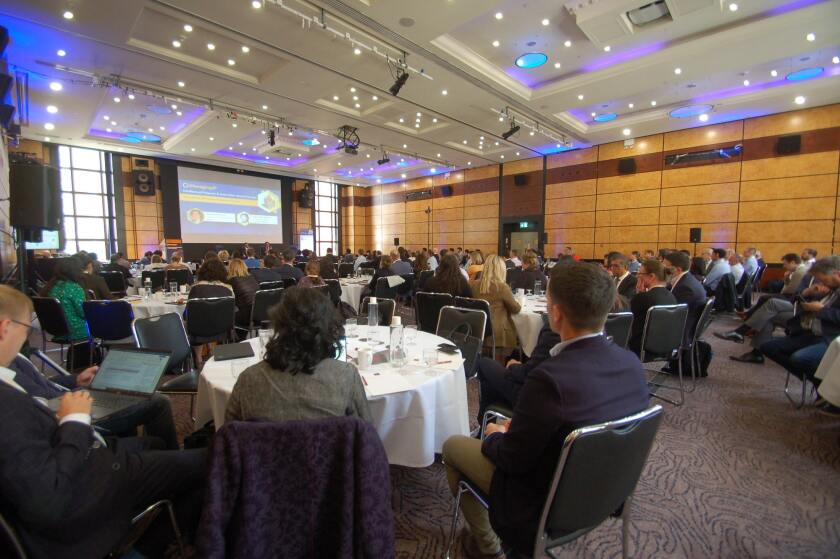Non-practising entities may be annoying, but they are not stupid according to the head of an organisation set up to deter litigation-hungry companies.
Ken Seddon, chief executive of the US-based LOT Network, provided an overview of NPE litigation in the US at Managing IP’s Intellectual Property & Innovation Summit in London on Wednesday, June 7.
Seddon – whose organisation offers a licence to all 3,100 members should the patents belonging to any other member fall into the hands of an NPE – said no “troll” had ever tried to sue a LOT member.
“As annoying as trolls are, they are not stupid,” said Seddon.
“We list every member and exactly when they joined. They [NPEs] know those companies are off-limits. The fact a company has a licence is public knowledge. It’s strength in numbers: if one member is targeted, they know they are suing a herd.”
Footing the bill
Seddon said the first companies to join LOT were software businesses, which are popular among so-called trolls because of their broad patents. This influx was followed by hardware companies.
Over time as more industries have adopted connected technology, other sectors including automotive and financial services have also come on board, he said.
Seddon likened obtaining NPE armoury to being at a dinner party with a group of friends, explaining: “You don’t want to be the last person to leave the table, as you’ll be the one stuck paying the bill.”
On the general state of NPE litigation, Seddon said NPEs were responsible for 88% of all high-tech patent lawsuits in the US in 2022. He added that 87% of all patents asserted by NPEs were previously owned by operating companies.
Particularly litigious NPEs – which LOT defines as companies that make more than 50% of their revenue purely by suing others – only care about making money, he told delegates.
“They get hold of a load of patents and send demand letters to small companies looking to get a settlement. They then pool all that money together and use that to go after the bigger companies.”
Power grab
Turning briefly to Europe, Seddon warned that the Unified Patent Court (UPC) could attract patent trolls and was likely to be pro-patentee.
While the UPC was understandably a major talking point – it was just one week old at the time of the conference – the European Commission’s controversial proposals regarding standard-essential patents (SEPs) were also on the agenda.
One delegate said during a session on Thursday, June 8, that the commission’s proposal, published in April, raised a “whole series of practical concerns”.
Adrian Howes, head of IP and standards and IP regulatory affairs at Nokia, said it was a major concern and overly ambitious to try and have an EU framework for SEPs up and running in two years.
“It looks like a large power grab, and all to address theoretical concerns that small and medium-sized enterprises are struggling to take [patent] licences,” he said.
He added that there was little consultation both within industry and internally among EU officials on the specific proposals.
Meta off dead?
Rounding off day two, panellists delved into intellectual property issues in both the virtual world (the metaverse) and the real world (China).
One panellist, when discussing general IP trends, notably referred to the metaverse – which has been the subject of much speculation and anticipation in the IP community – as “not over just yet”.
That comment perhaps didn’t provide the best segue into a metaverse-focused session. Nevertheless, panellists from banking group NatWest and telecoms company Vodafone discussed their approaches to managing IP in a virtual environment.
Mark Cruickshank, managing legal counsel at NatWest Group in the UK, said many customers use the bank’s app rather than a physical branch.
Because of this, offering banking services within the metaverse would not be the huge leap it may initially seem, he said.
“At the moment discussions are on how to encourage customers to feel safe to discuss financial information in a metaverse environment. We are still looking at what and where the opportunities are.”
Natasza Shilling, lead counsel for IP rights at Vodafone in London, pointed out that there is not a single metaverse but a number of separate ones.
“As a brand owner, it can be hard to decide where to spend your money and time so you get the best customer engagement,” she said, noting that the company has opened a shop within the Decentraland platform.
China updates
While there may be debates about whether the metaverse is here to stay, one jurisdiction that is not going anywhere and remains very much at the forefront of counsel’s mind is China.
Speakers from Dyson and entertainment company eOne described their experiences of operating in the country.
George Sevier, head of IP enforcement at Dyson in the UK, pointed to recent improvements to the IP framework, including statutory damages for IP infringement being raised from RMB 1 million ($140,000) to RMB 5 million as a “step in the right direction”.
Historically, the damages available were not enough to dissuade bad actors from infringing, he added.
Niall Trainor, senior director of brand protection at eOne in London, had a broadly positive outlook after his company was able to secure a well-known trademark for Peppa Pig, one of the brands it manages, in 2021.
Trainor described being hit with a deluge of piracy and bad-faith trademarks when Peppa Pig first entered the Chinese market.
“There’s a very high burden to get over that hurdle and a huge amount of evidence required, including about the taxes we have paid, advertising, what awards we have won, and all licensing agreements we have in place to show how popular we are in China.”
Managing IP’s Intellectual Property & Innovation Summit took place in London on June 7 and 8.











